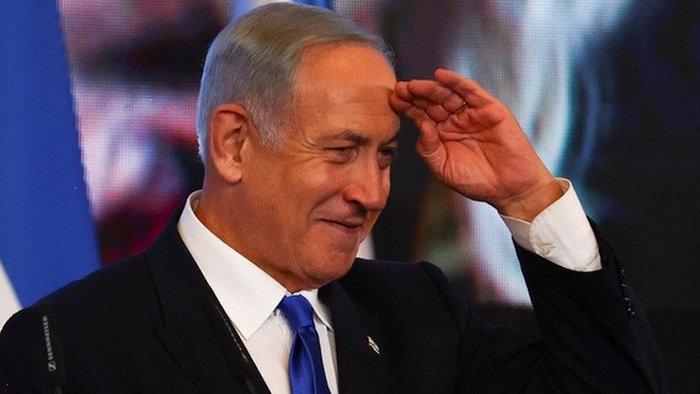Israel election: Who are the key candidates?
- Published
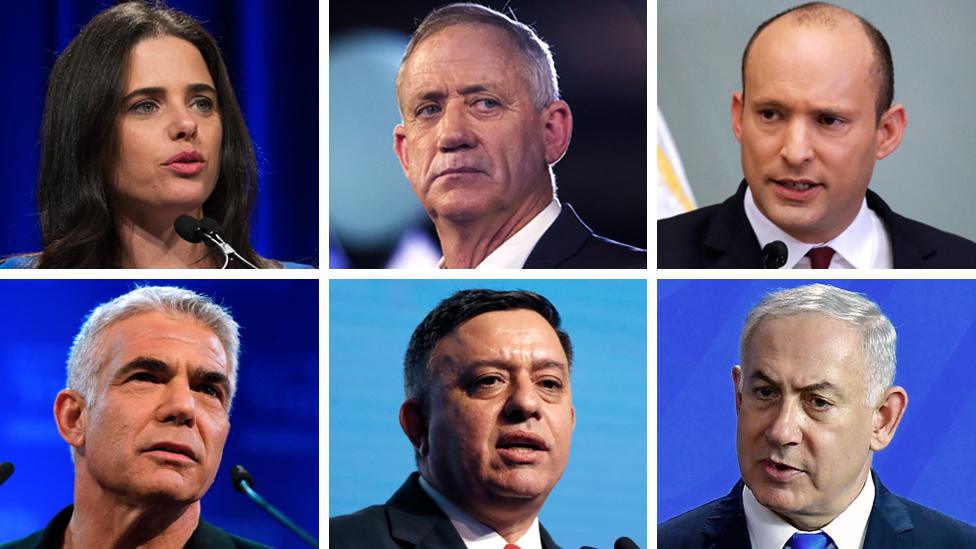
Israelis will vote on 9 April in what is being billed as one of the toughest general elections Prime Minister Benjamin Netanyahu has yet faced.
His right-wing Likud party is in a tight race with the new centre-right Blue and White alliance, which has been gaining ground in the polls in recent months. But other parties could end up being kingmakers when they try to form a governing coalition.
These are the politicians set to play a major role in the election and its aftermath.

The political survivor: Benjamin Netanyahu
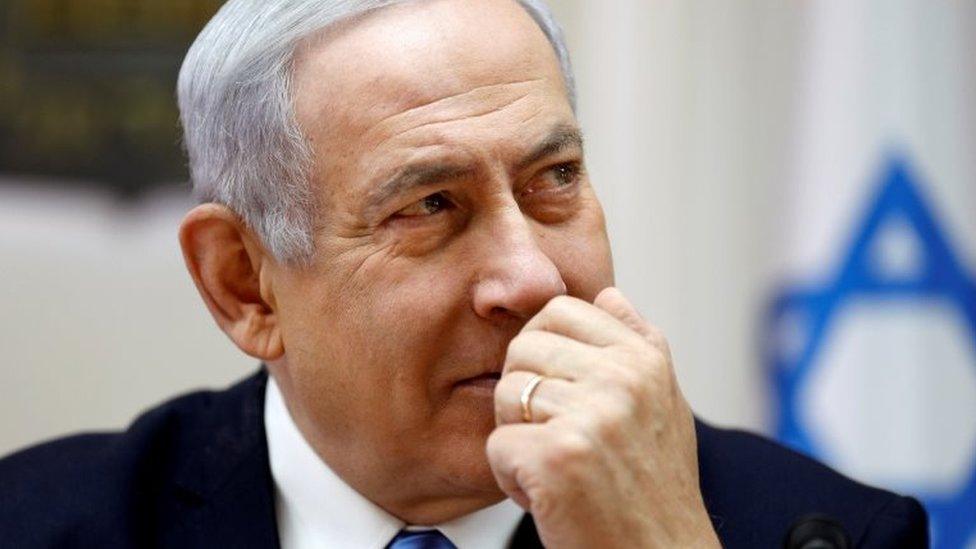
If he emerges victorious once again, Mr Netanyahu is poised to overtake David Ben-Gurion as Israel's longest-serving prime minister.
He has been in power for three consecutive terms since 2009 and also led Israel from 1996 to 1999.
The Likud leader has built a reputation as a consummate political survivor, presenting himself as the only candidate qualified to safeguard Israel's security and guide its international relations.
Both in office and on the campaign trail, he has depicted Israel as facing an array of external threats, including Iran, Lebanon's Shia Islamist Hezbollah movement, and the Palestinian Islamist movement Hamas, which controls the Gaza Strip.
Mr Netanyahu has previously endorsed a two-state solution to the Israeli-Palestinian conflict, but has qualified that statement since by saying he would support a "state-minus," or a demilitarised state under Israel's security control. During the election campaign, he has warned that his challengers would allow the creation of a Palestinian state, calling it a mortal threat to Israel.
A decision by Israel's attorney general to indict Mr Netanyahu in three corruption cases pending a final hearing has put a dent in his re-election campaign, and it remains unclear whether this will ultimately rally supporters around him or drive voters away.
If he is to form the next government, Mr Netanyahu is likely to have to rely on other right-wing and religious parties.

The rising star: Benny Gantz
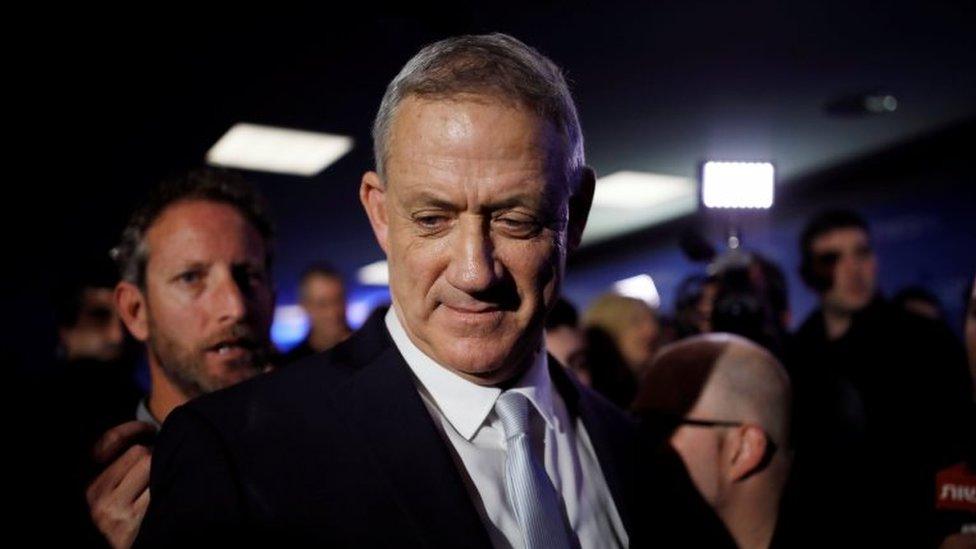
Touting his security credentials as a former chief of staff of the Israel Defense Forces, Benny Gantz has emerged as a serious challenger to Mr Netanyahu.
A newcomer to politics, the retired general formed the Blue and White alliance in February with the leader of the centrist Yesh Atid party, Yair Lapid, and two other former IDF chiefs of staff, Moshe Yaalon and Gabi Ashkenazi.
Mr Gantz has promised to bring a different style to Israel's government and end what he has called Mr Netanyahu's polarising rhetoric.
Mr Gantz's election ads have trumpeted his military record, featuring a body count of Palestinian militants and scenes of destruction from the war in Gaza that he oversaw in 2014.
Seeking to draw right-leaning voters away from Mr Netanyahu, Mr Gantz has talked tough on Iran and echoed the prime minister's positions on the Palestinian-Israeli conflict. He has avoided mention of a two-state solution and ruled out unilateral withdrawals in the occupied West Bank, pledging to bolster large Israeli settlement blocs there and maintain the IDF's freedom of action throughout the territory. Settlements are seen as illegal under international law, although Israel disagrees.
The son of Holocaust survivors, Mr Gantz grew up in a farming community. He held a number of important positions in the IDF during his 38 years of service, including commander of Israeli forces in southern Lebanon when they withdrew in 2000 and commander of forces in the West Bank at the start of the second Palestinian intifada, or uprising. He served as chief of staff from 2011 to 2015.
To unseat Mr Netanyahu, Blue and White will need to ally with several smaller parties. But it is unclear whether it would be able to muster enough seats to win a majority in parliament.

The TV host-turned-politician: Yair Lapid
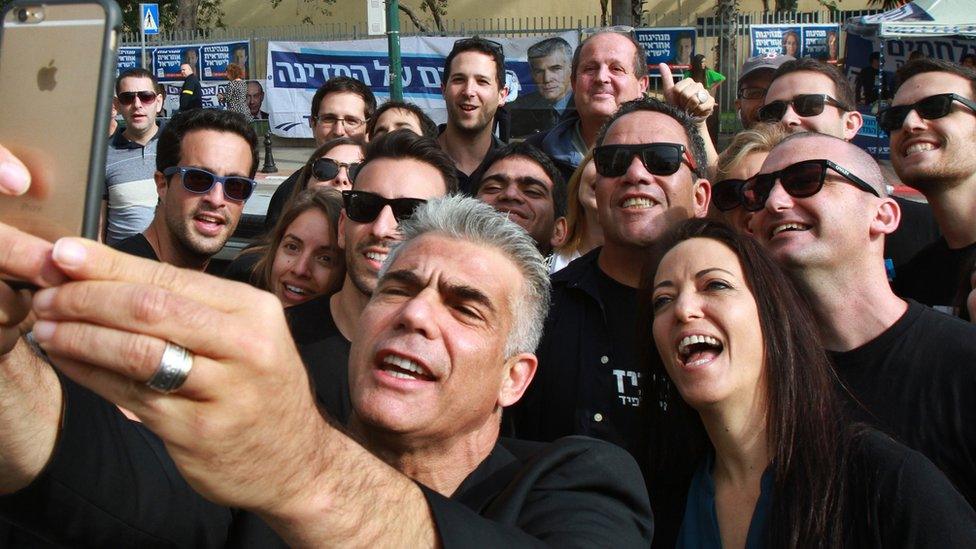
Yair Lapid heads the centrist Yesh Atid party and is deputy leader of the Blue and White alliance.
Under an agreement with Mr Gantz, he will take over from him as prime minister after two-and-a-half years should Blue and White win the election.
His previous experience in government was a stint as finance minister under Mr Netanyahu between 2013 and 2014.
A former journalist and broadcaster, Mr Lapid is guiding Blue and White's election campaign, focusing its message on the possible corruption charges the prime minister faces.
Mr Lapid has supported "separation" from the Palestinians and in the past endorsed a two-state solution to the Israeli-Palestinian conflict, though he has not repeated that call in the current campaign.
He has also been outspoken in his opposition to political alliances with Israeli Arab parties, whose backing in parliament after the elections might give Blue and White the majority it would need to form a government.

The 'New Right': Naftali Bennett and Ayelet Shaked
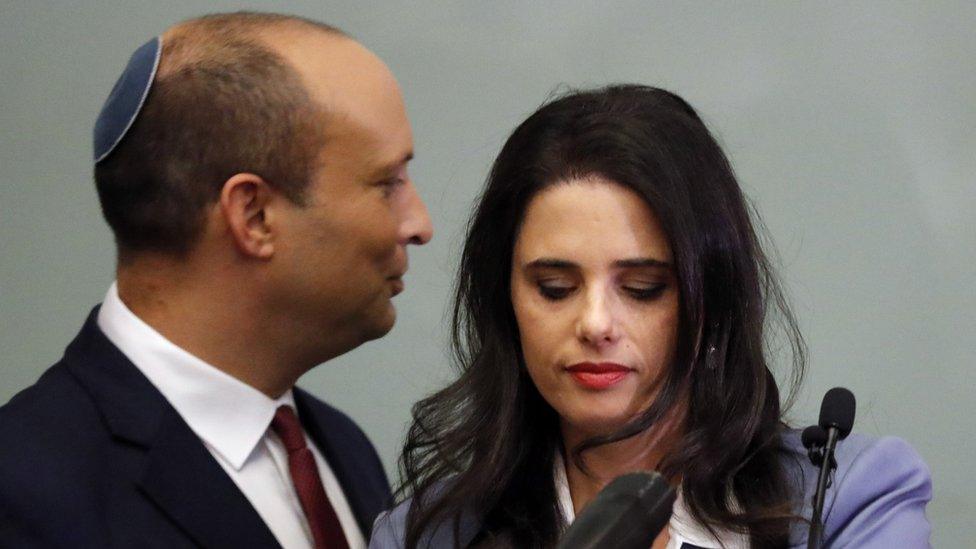
The education and justice ministers are presenting themselves as genuine right-wing alternatives to Mr Netanyahu.
Mr Bennett and Ms Shaked quit the the religious pro-settlement Jewish Home party in December to form their own party, the New Right, which seeks to attract both secular and religious voters.
Advocating hawkish policies toward the Palestinians, Mr Bennett has criticised the prime minister for not cracking down hard on Hamas militants in Gaza in response to rocket attacks on Israeli communities.
Mr Bennett has vowed to "defeat" Hamas if New Right wins the election. He has unveiled a five-point plan, external that includes "pounding Hamas from the air", "targeted assassinations" of the group's leaders, and the "permanent demilitarisation" of Gaza.
He has also accused Mr Netanyahu of working with Donald Trump to form a blueprint for a Palestinian state in the US president's long-awaited Middle East peace plan. Mr Bennett vehemently opposes such a state, calling it a threat to Israel's existence.
As justice minister, Ms Shaked presided over the appointment of more conservative judges to Israel's Supreme Court, arguing that it had a liberal tilt and intervened too often in government decisions. If New Right wins, she wants to give parliament the power to re-pass laws struck down by the Supreme Court.

The underdog: Avi Gabbay
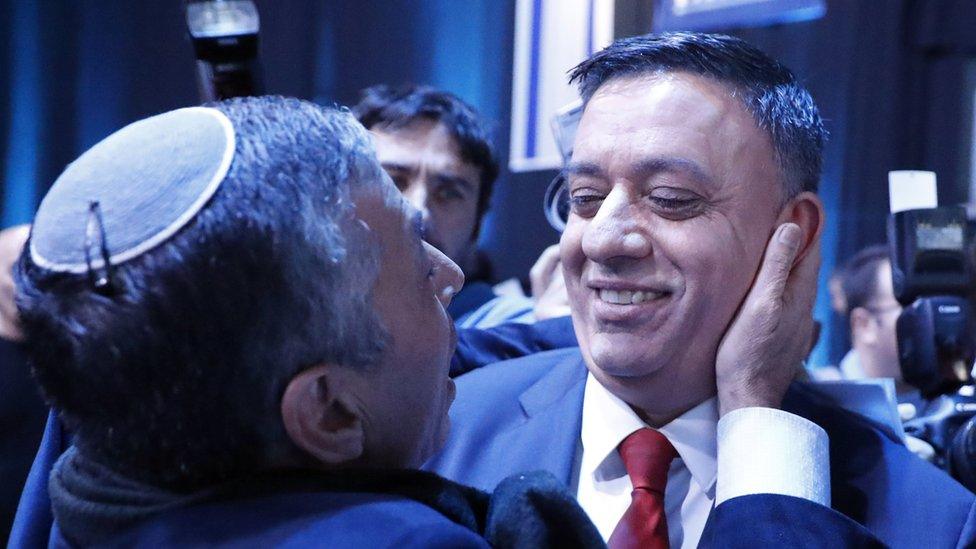
The leader of the centre-left Labour party looks destined for an unremarkable showing at the polls.
A former cabinet minister who was previously CEO of Israel's largest telecoms company, Mr Gabbay appealed to right-wing voters after he was elected Labour's leader in 2017.
He dismissed the notion of evacuating Jewish settlements in the West Bank and declared that "the left has forgotten what it is to be Jewish", echoing a phrase once used by Mr Netanyahu.
However in the current election campaign, Mr Gabbay has sought to highlight the differences between Labour, Likud and Blue and White.
Mr Gabbay has called for a Middle East peace deal that would see a demilitarised Palestinian state established. A three-step "separation plan" put forward by Labour, external calls for an immediate end to building at outlying Jewish settlements deep inside the West Bank, legislation to compensate residents willing to leave those settlements, and a referendum for Israelis on the status of Arab areas on the outskirts of occupied East Jerusalem.
Mr Gabbay has argued that unlike Mr Gantz, he offers a true alternative to the policies of Mr Netanyahu, though he has turned down an offer to merge Labour with Meretz, the flagship party of the Israeli left.
He has also insisted that under no circumstances would Labour join a coalition government that included Mr Netanyahu.

The dark horse: Moshe Feiglin
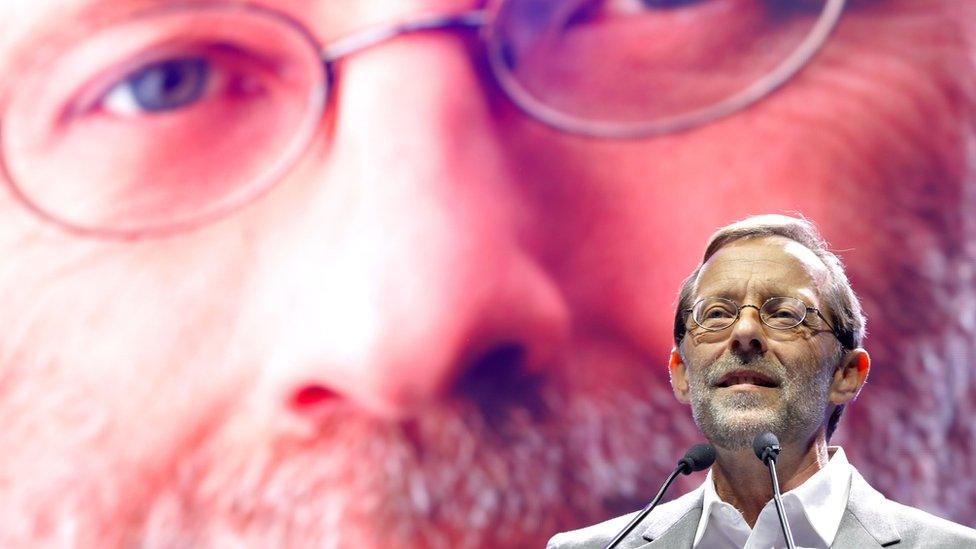
Moshe Feiglin, a maverick politician with a mix of libertarian and ultra-nationalist views, is best known for his support for the legalisation of cannabis.
His Zehut party has emerged as a popular alternative, attracting Israelis seeking to cast a protest vote, and if it wins several seats he could emerge as a kingmaker when coalition talks start. He has said Zehut will join a coalition that will go furthest towards advancing its goals.
A religious West Bank settler who began his political career in the Likud party, Mr Feiglin wants to drastically reduce the number of government ministries, and replace state schools with a voucher system that would fund tuition at private schools. He supports ending the registration of marriages through the Chief Rabbinate, allowing people to marry whomever they wish, including someone of the same sex. He has also called for US military aid to Israel and IDF conscription to end.
However, Mr Feiglin's laissez-faire positions are coupled with a hardline approach to the Palestinians.
He supports the cancellation of the Oslo Accords and annexation of the West Bank, and would give Palestinians the option of emigrating or remaining as permanent residents. He also advocates moving Israeli government offices to East Jerusalem, which Palestinians want to be their future capital, and building a synagogue on the contested holy site known to Jews as Temple Mount and to Muslims as Haram al-Sharif.
BBC Monitoring, external reports and analyses news from TV, radio, web and print media around the world. You can follow BBC Monitoring on Twitter , externaland Facebook, external.
- Published14 May 2020
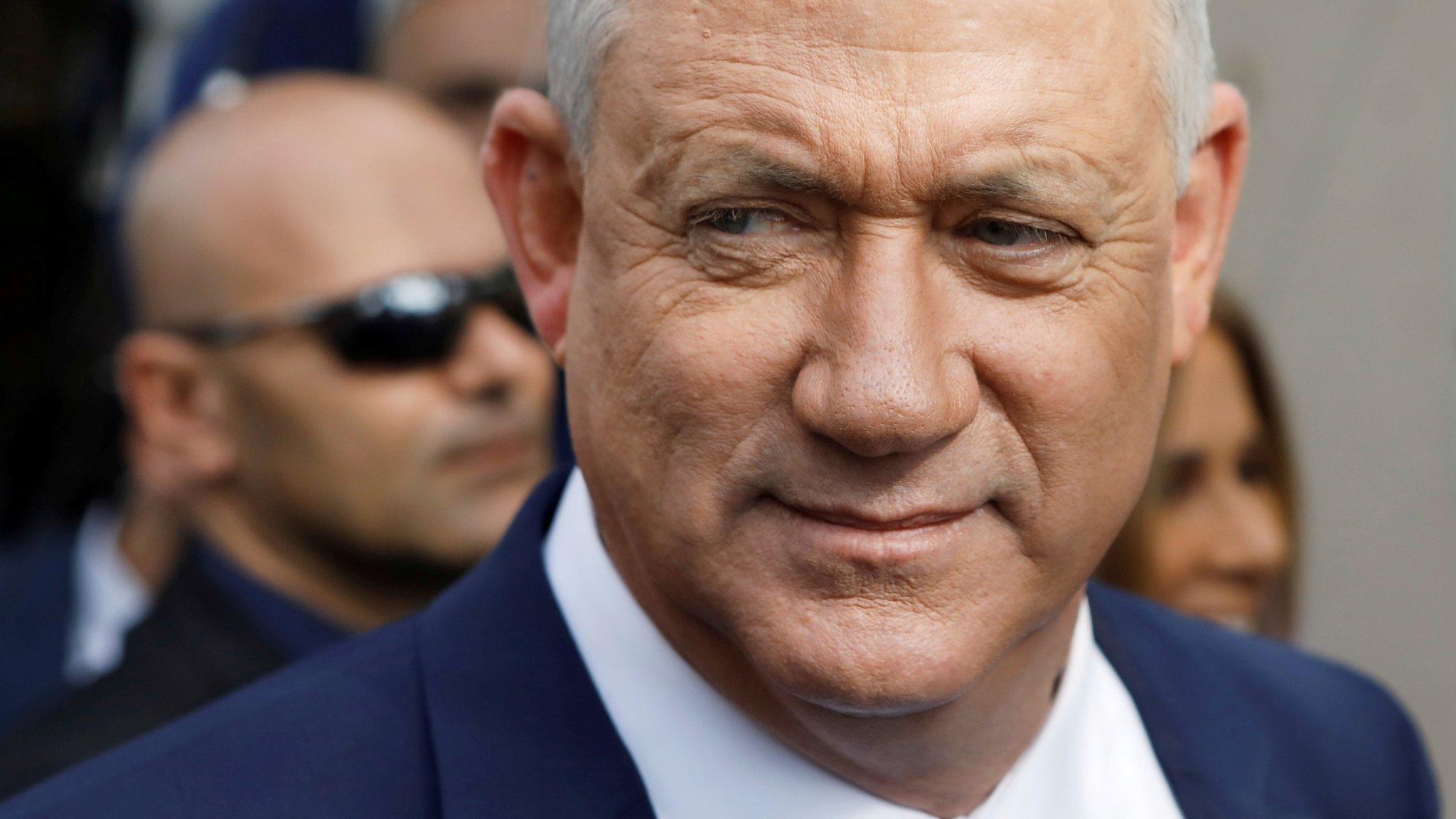
- Published21 February 2019
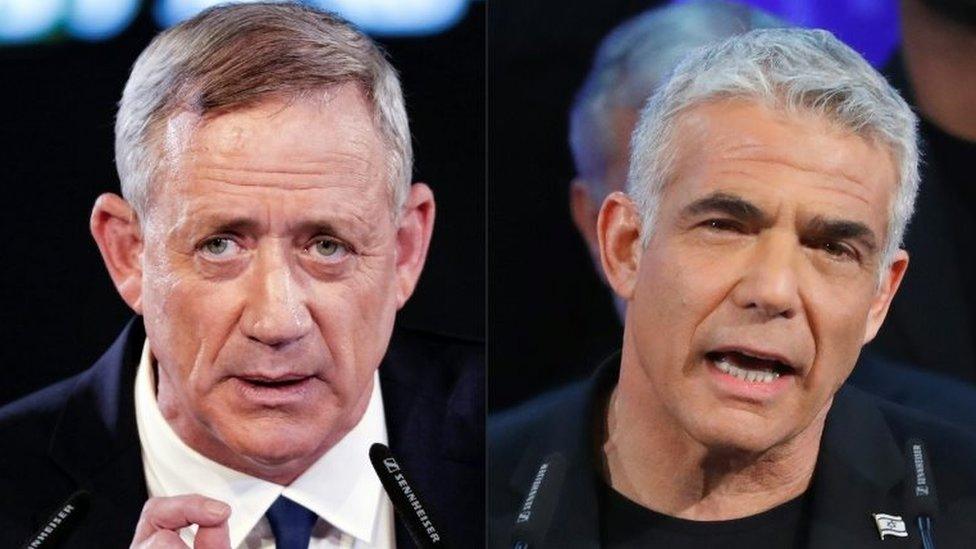
- Published28 February 2019
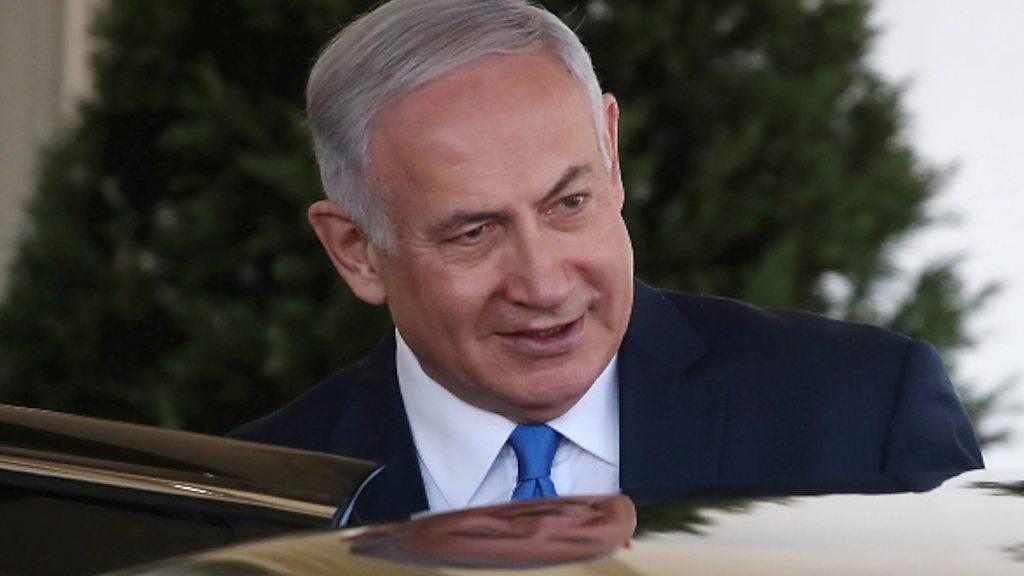
- Published21 November 2024
